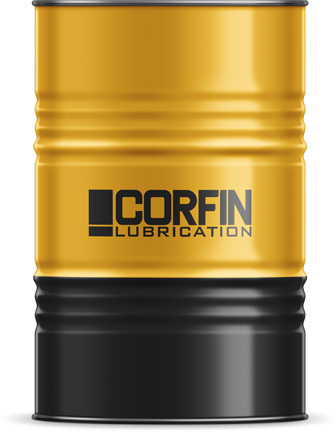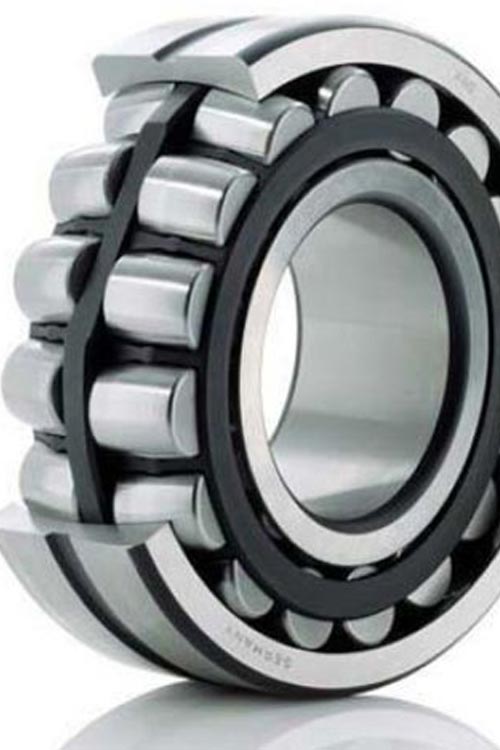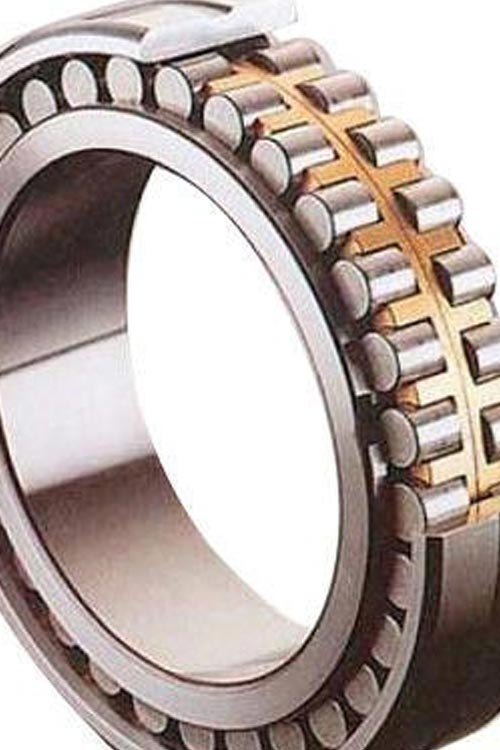SKU 110101
Category Greases
Synthetic High Speed Grease
UNIFLEX 18
Synthetic High Speed Grease Advantages
It is an ideal lubricating grease for all needle bearings operating at high and medium speeds. Corfin brand Uniflex-18 is a long-lasting and high-performance product that can be used in all systems where operating temperatures are very low and operating speeds are very high.
Speed grease, which has a wide range of uses, is used in needle bearings, spindles of machine tools, bearings of spinning turbines and lubrication of bearings of sensitive and optical devices where the sound level is required.
WHAT IS SPEED GREASE?
Friction, wear and corrosion in mechanical systems can cause disruption of the production process and serious damage to machines. Lubrication using the optimum level of grease helps to carry out the production process without interruption. As a result, problems like this can only be solved by using quality speed grease.
The important thing before the application is to determine the requirements. Accordingly, what is important is the design and working principle of the machines to be applied. Afterwards, it is decided what type of lubricant should be used. Only by choosing the right high-speed grease can avoid the current challenges significantly.

-40 / 165 °C wide operating temperature range
High pressure resistance reinforced with solid additives
Perfect compatibility with plastic and elastomer materials
Synthetic High Speed Grease Features
- PAO has the unmatched performance of ester base oil.
- Corfin Unifex speed grease is used in all needle bearings that operate at high speeds.
- It can perform superior at low or high speeds.
- It can prevent damage such as friction, corrosion and wear in mechanical systems.
- It has the feature of synthetic grease with a wide range of uses.

Synthetic High Speed Grease Usage Areas
Which Industries
Should Prefer?



You can contact us for any questions you may have
YOU MAY
ALSO
INTEREST
PRODUCTS
Synthetic High Speed Grease Tech Data
| ANALİZLER | STANDART | BİRİM | SONUÇ |
|---|---|---|---|
| Color | Beige | ||
| Appearance | Homogeneous | ||
| Thickener | Lithium Complex | ||
| Base Oil | Synthetic | ||
| Base Oil Viscosity (cst) at 40 °C | ASTM D445 | cst | 15 |
| Temperature Range | °C | -40 / 165 | |
| NLGI Class | 2 | ||
| Penetration | ASTM D217 | mm/10 | 265 - 295 |
| Dropping Point | ASTM D2265 | °C | > 235 |
| Seperation from Oil (% weight) 30 hours / 100 °C | ASTM D6184 | %wt | % 6,50 |
| Seperation from Oil (% weight) 7 days / 40 °C | IP 121 | %wt | 0,71 |
| Four Ball Test 1 hour /75 °C - 40kg (392 N) | ASTM D2266 | mm | <0,5 |
| Four-Ball EP Test 10 sec. / 1770 rpm Speed | ASTM D2596 | kg | 300 |
| Water Spray (% weight) | ASTM D4049 | %wt | %25 |
| Rust Test | ASTM D1743 | Pass | |
| Speed Factor (n x dm),[mm x min] | 1.000.000 |
Synthetic High Speed Grease Frequently Asked Questions
Contact Form

MADE IN
TÜRKİYE
FOR ALL ORDERS
FREE SHIPMENT
ON-SITE PROBLEM
DETECTION
TECHNICAL
CONSULTING
ADVANTAGES OF USING HIGH SPEED GREASE
Grease lubrication has many advantages over standard methods. The most important reason is that the consistency of the grease allows it to remain on the friction points for much longer. Uniflex-18, with its thick consistency, provides long lasting lubrication from a single grease lubricant, even in situations where re-lubrication is not possible.
In industrial applications, where the design of the machine does not allow for liquid lubrication, the best option is to use Speed Grease. Examples of such applications include machine tool spindles that rotate at high speeds and have low surface pressures.
6 FACTORS FOR SELECTING HIGH SPEED GREASE
Base Oil Viscosity: Ensure that the viscosity provides enough of a lubricating film, but is not too thick to cause excessive heat and drag.
Channeling Features: Speed grease must be able to channelize to avoid excessive heat from grease agitation.
Dropping Point: The drip point of the grease should exceed the operating temperature by a wide margin to prevent excessive leakage and possible bearing failure.
Thickener Type: A thickener that can provide suitable drip point, channeling and draining properties should be selected. Also, if using more than one grease, check the compatibility of thickener types in case of accidental mixing.
NLGI Grade: The consistency of the grease will affect the leaching properties and grooving characteristics of the used lubricating grease.
Additive Load: Most applications require additives to help lubricate the oil. For speed grease, a wide range of chemical and solid additives can be mixed to help film strength and reduce friction and wear.
The information contained on this page is based on our current experience and is intended to provide information on appropriate use or application based on technical experience. It does not constitute a warranty or guarantee for the product. It is recommended that you contact us for your specific applications and for more comprehensive information. Akoni Kimya reserves the right to change all of the information on this page without notice.
SKU 110101
Category Greases
Synthetic High Speed Grease
UNIFLEX 18

THICKENER
Lithium Complex
BASE OIL
Synthetic
NLGI
2
1 kg, 18 kg, 180 kg
1-3 Weeks
-
MADE IN
TÜRKİYE
-
FOR ALL ORDERS
FREE SHIPMENT
-
ON-SITE PROBLEM
DETECTION
-
TECHNICAL
CONSULTING
Synthetic High Speed Grease Advantages
It is an ideal lubricating grease for all needle bearings operating at high and medium speeds. Corfin brand Uniflex-18 is a long-lasting and high-performance product that can be used in all systems where operating temperatures are very low and operating speeds are very high.
Speed grease, which has a wide range of uses, is used in needle bearings, spindles of machine tools, bearings of spinning turbines and lubrication of bearings of sensitive and optical devices where the sound level is required.
WHAT IS SPEED GREASE?
Friction, wear and corrosion in mechanical systems can cause disruption of the production process and serious damage to machines. Lubrication using the optimum level of grease helps to carry out the production process without interruption. As a result, problems like this can only be solved by using quality speed grease.
The important thing before the application is to determine the requirements. Accordingly, what is important is the design and working principle of the machines to be applied. Afterwards, it is decided what type of lubricant should be used. Only by choosing the right high-speed grease can avoid the current challenges significantly.

-40 / 165 °C wide operating temperature range
High pressure resistance reinforced with solid additives
Perfect compatibility with plastic and elastomer materials
Synthetic High Speed Grease Features
- PAO has the unmatched performance of ester base oil.
- Corfin Unifex speed grease is used in all needle bearings that operate at high speeds.
- It can perform superior at low or high speeds.
- It can prevent damage such as friction, corrosion and wear in mechanical systems.
- It has the feature of synthetic grease with a wide range of uses.

Synthetic High Speed Grease Usage Areas
Which Industries
Should Prefer?


You can contact us for any questions you may have
IN THESE PRODUCTS
YOU MAY BE INTERESTED
Synthetic High Speed Grease Tech Data
| ANALİZLER | STANDART | BİRİM | SONUÇ |
|---|---|---|---|
| Color | Beige | ||
| Appearance | Homogeneous | ||
| Thickener | Lithium Complex | ||
| Base Oil | Synthetic | ||
| Base Oil Viscosity (cst) at 40 °C | ASTM D445 | cst | 15 |
| Temperature Range | °C | -40 / 165 | |
| NLGI Class | 2 | ||
| Penetration | ASTM D217 | mm/10 | 265 - 295 |
| Dropping Point | ASTM D2265 | °C | > 235 |
| Seperation from Oil (% weight) 30 hours / 100 °C | ASTM D6184 | %wt | % 6,50 |
| Seperation from Oil (% weight) 7 days / 40 °C | IP 121 | %wt | 0,71 |
| Four Ball Test 1 hour /75 °C - 40kg (392 N) | ASTM D2266 | mm | <0,5 |
| Four-Ball EP Test 10 sec. / 1770 rpm Speed | ASTM D2596 | kg | 300 |
| Water Spray (% weight) | ASTM D4049 | %wt | %25 |
| Rust Test | ASTM D1743 | Pass | |
| Speed Factor (n x dm),[mm x min] | 1.000.000 |
Synthetic High Speed Grease Frequently Asked Questions
Contact Form
ADVANTAGES OF USING HIGH SPEED GREASE
Grease lubrication has many advantages over standard methods. The most important reason is that the consistency of the grease allows it to remain on the friction points for much longer. Uniflex-18, with its thick consistency, provides long lasting lubrication from a single grease lubricant, even in situations where re-lubrication is not possible.
In industrial applications, where the design of the machine does not allow for liquid lubrication, the best option is to use Speed Grease. Examples of such applications include machine tool spindles that rotate at high speeds and have low surface pressures.
6 FACTORS FOR SELECTING HIGH SPEED GREASE
Base Oil Viscosity: Ensure that the viscosity provides enough of a lubricating film, but is not too thick to cause excessive heat and drag.
Channeling Features: Speed grease must be able to channelize to avoid excessive heat from grease agitation.
Dropping Point: The drip point of the grease should exceed the operating temperature by a wide margin to prevent excessive leakage and possible bearing failure.
Thickener Type: A thickener that can provide suitable drip point, channeling and draining properties should be selected. Also, if using more than one grease, check the compatibility of thickener types in case of accidental mixing.
NLGI Grade: The consistency of the grease will affect the leaching properties and grooving characteristics of the used lubricating grease.
Additive Load: Most applications require additives to help lubricate the oil. For speed grease, a wide range of chemical and solid additives can be mixed to help film strength and reduce friction and wear.
The information contained on this page is based on our current experience and is intended to provide information on appropriate use or application based on technical experience. It does not constitute a warranty or guarantee for the product. It is recommended that you contact us for your specific applications and for more comprehensive information. Akoni Kimya reserves the right to change all of the information on this page without notice.







